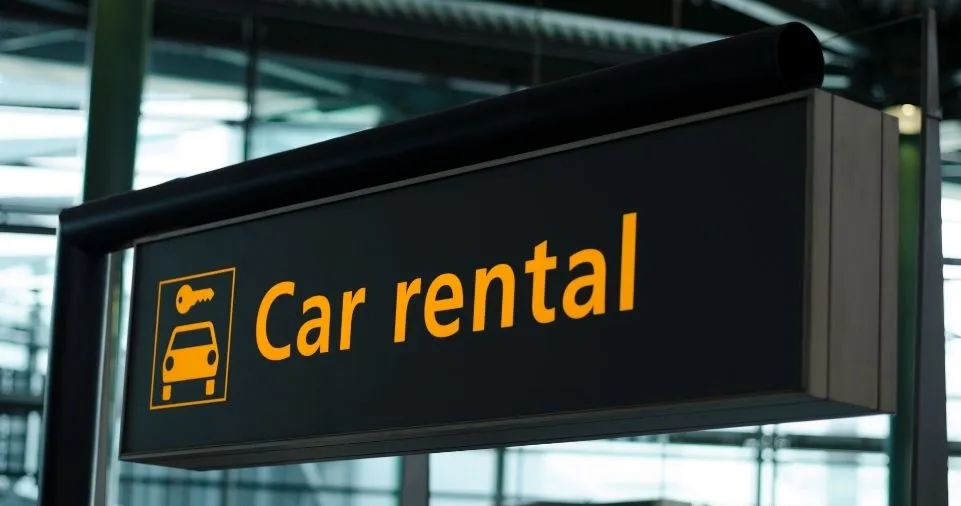Research rental companies for the best rates and services when renting a car. Inspect the vehicle thoroughly before driving and report any pre-existing damage to avoid extra charges.
Review the rental agreement, paying close attention to fuel policies, insurance options, and mileage limits. Ensure you understand return procedures, including location and timing, to avoid late fees.
Consider bringing your navigation tools to save on rental costs. Finally, familiarize yourself with local traffic laws and parking regulations at your destination. Following these best practices will help ensure a smooth, hassle-free rental experience during your trip.
Choosing the Right Car Rental Company
Selecting the best car rental company is the foundational step to ensure a smooth experience. First, thoroughly research different companies by reading online reviews and comparing their rates. Websites like Consumer Reports provide comprehensive comparisons to help you make an informed choice.
This process will help you identify companies that offer reliable service and competitive pricing. Don’t forget to check out promotional deals on RetailMeNot to get the best discounts on car rentals from companies like Budget.
Filtering through user reviews can also provide insights into each company’s customer service and vehicle condition, which are crucial for a hassle-free rental experience.
Understanding Your Rental Agreement
Before signing a rental agreement, it’s essential to understand all the terms and conditions thoroughly. Key details such as the rental period, including exact pick-up and return times, must be clearly stated to avoid unexpected late fees.
Additionally, many agreements include mileage limits, and exceeding these limits can result in costly extra charges. Neglecting these little details or neglecting to peruse the tiny print may result in unanticipated costs for your rental.
If any clauses are unclear, discussing them with the rental agency is essential to avoid future misunderstandings.
Since the rental agreement is legally binding, you must understand your commitment. Doing this can prevent surprises and guarantee a seamless renting process.
Inspecting the Vehicle
Before driving away in a rental vehicle, inspecting it thoroughly for any existing damage is crucial. Please take note of scratches, dents, or imperfections inside and outside the car and immediately report them to the rental company.
This step can prevent future disputes regarding responsibility for damages upon returning the vehicle. For added protection, take clear photos or videos of the car’s condition, documenting any issues as evidence.
Don’t forget to check the functionality of essential features such as lights, wipers, and indicators. Failing to document and report pre-existing damage could result in unexpected repair fees after the rental period.
Utilizing Discounts and Deals
Numerous vehicle rental firms provide special offers or discounts. Always enquire about any current deals that you may be eligible for. Expert advice on saving money on rent through various sales and discounts may be found on websites like Kiplinger.
You may save money using specific credit cards and participating in reward programs. Also, check if your employer, memberships, or affiliations offer rental discounts. Using these options can substantially lower your rental costs without compromising on quality.
Navigating Insurance Options
Understanding car rental insurance options is crucial for a smooth rental experience. Evaluate whether your personal car insurance or credit card offers rental coverage to avoid purchasing unnecessary insurance from the rental company.
Speak to your insurance provider beforehand to clarify your coverage and make decisions accordingly. Renting without adequate coverage can leave you financially vulnerable in an accident.
Remember, rental companies often push various insurance packages, but being informed will help you choose wisely and avoid unnecessary costs.
Planning Your Route
Make sure you carefully plan your trip before you go. This helps avoid detours, reduce travel time, and estimate fuel costs.
GPS systems can be invaluable, so consider renting one if your car doesn’t have the feature. Using apps like Google Maps or Waze can enhance your navigation experience by providing real-time updates and traffic alerts.
Pre-planning your route also ensures you know landmarks, rest stops, and fuel stations. This level of preparedness can make your trip more enjoyable and less stressful.
Fuel Policies to Consider
Car rental companies have various fuel policies, such as full-to-full or pre-purchase. Choose a policy that best suits your trip to avoid additional fuel charges.
The full-to-full policy usually provides the best value, allowing you to fill the tank at local gas stations, often cheaper than the rental company’s rates. Remember to fill the tank with gas before returning the car to comply with the policy’s requirements.
By taking this easy action, you may avoid receiving unforeseen overcharges when your rental is about to expire. Always keep the fuel receipt as proof of refueling if required.
ALSO READ: Choosing the Perfect New Home: A Comprehensive Guide
Returning the Car on Time
Returning the car late can incur substantial additional fees. Plan your schedule to ensure you return the vehicle within the agreed time frame. If you’re running late, inform the rental company beforehand to see if they offer a grace period.
Some rental companies may allow a short extension free of charge, but this isn’t guaranteed. Returning the car on time saves you money and helps maintain a good relationship with the rental company for future rentals.
Always aim to return the vehicle in the same condition you received to avoid additional cleaning or maintenance fees.







